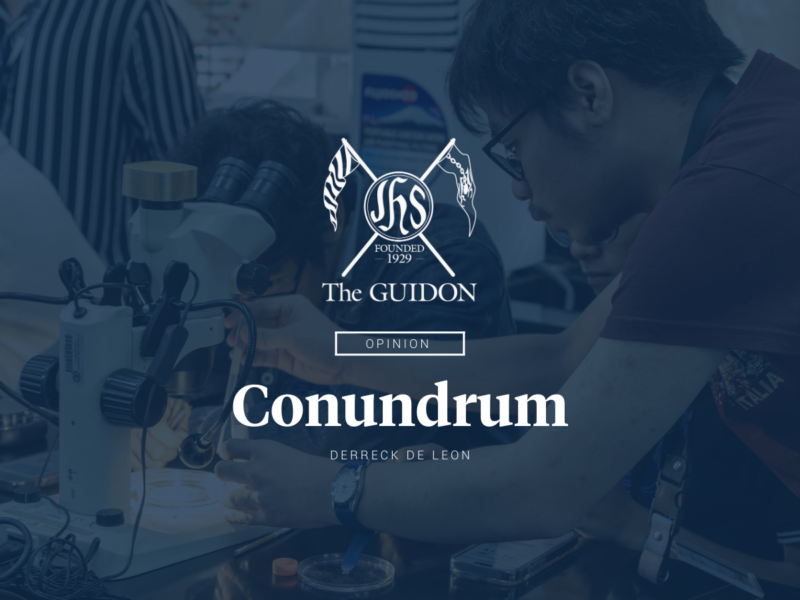DURING MY four years as a student majoring in Biology, I have learned to love life in all of its various forms. From a minuscule fragment of nucleic acid to a wide-scale biodiversity, I have not only appreciated complex scientific processes but also became cognizant of the growing problems that the field of science faces.
Learning about the most intricate processes of life remains a privilege for us, despite the challenges that biologists may face in a third-world country. Due to the limited funding for structures, equipment, and compensation for the scientists themselves, the country remains to be a constant witness to such neglect.
On paper, at the very least, the Philippines has had a deep-rooted interest in the field of science, even if it had only sometimes been evident. As proclaimed in Article XIV, Section 10 of the 1987 Philippine Constitution, the State declares imminent “priority to research and development, invention, innovation, and their utilization.”
Thus, it is a disservice that the national government turns a blind eye to one of its established mandates to the country, especially when the current state of science is in disarray.
This 2024, the Department of Science and Technology had to endure wide-reaching budget cuts, such as the deduction of Php 329 million for the Philippine Science High School System, Php 60.9 million for the Advanced Science and Technology Institute, and Php 23.6 million for the National Research Council of the Philippines.
Such huge budget cuts threaten the future of the country’s science and technology industries. These long-term financial investments need to be given more succor in national priorities as they further drive innovation and exploration in the field of science. Beyond the academe, science is one of the most far-reaching disciplines that creates a ripple effect on other branches of study and praxis, such as medicine and technology.
In the grander scheme of things, each member of the Philippines’ research and science community can emphasize the impacts of problem-solving innovations that address localized problems in the country. Through having the means and support from the national government, developments can be accelerated to translate into an overall improved quality of life for the Filipinos.
Nevertheless, throughout the past decade, the country’s foundations of scientific knowledge have undoubtedly witnessed numerous developments despite the limited budgets across different scientific agencies. From mitigating monkeypox to plastic-eating bacteria, the scientific community in the country can be deemed promising and prospering, potentially making more extensive strides in the upcoming years.
In the Global Innovation Index (GII) 2023, the Philippines ranks 56th out of 132 countries across the globe, and 11th out of the 16 countries in the Southeast Asia, East Asia, and Oceania region. To elaborate, the GII considers developments such as knowledge and technology outputs, alongside human capital and research. Despite being categorized in the lower-middle-income economies, the country notably climbed from the 90th rank, possibly crediting the increase in innovation outputs in the past four years.
As said by Newton, the law of conservation of momentum states that momentum will remain constant unless acted upon by influences of forces. In the country’s contexts, the state of sciences has already been making significant headway, and such momentum should not be disrupted by a government that cannot match such pace.
Notably, the recently approved General Appropriations Act favors the agenda for public infrastructures and general public services for the upcoming year, instead of making strides and forwarding reforms that sustain the lifelong interest of people for sciences.
In the coming months, the Ateneo will just be one of the many universities producing a new generation of scientists and researchers who are expected to solve the world’s global and environmental issues. With the country’s limited finances and little regard for the science and research sector, the Philippines is at risk of losing the greatest venture—research made by the Filipinos and for the Filipinos.
Anna is a Biology senior expecting to graduate in 2024. Specializing in Biomedical Science, she integrates her knowledge of hard sciences with her grown affinity for journalism and communication—amplifying calls for climate justice, environmental sustainability, and healthcare development.
Editor’s Note: The views and opinions expressed by the opinion writer do not necessarily state or reflect those of the publication.







